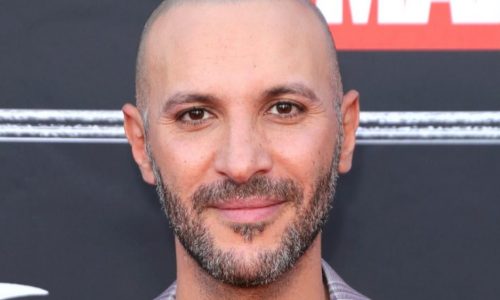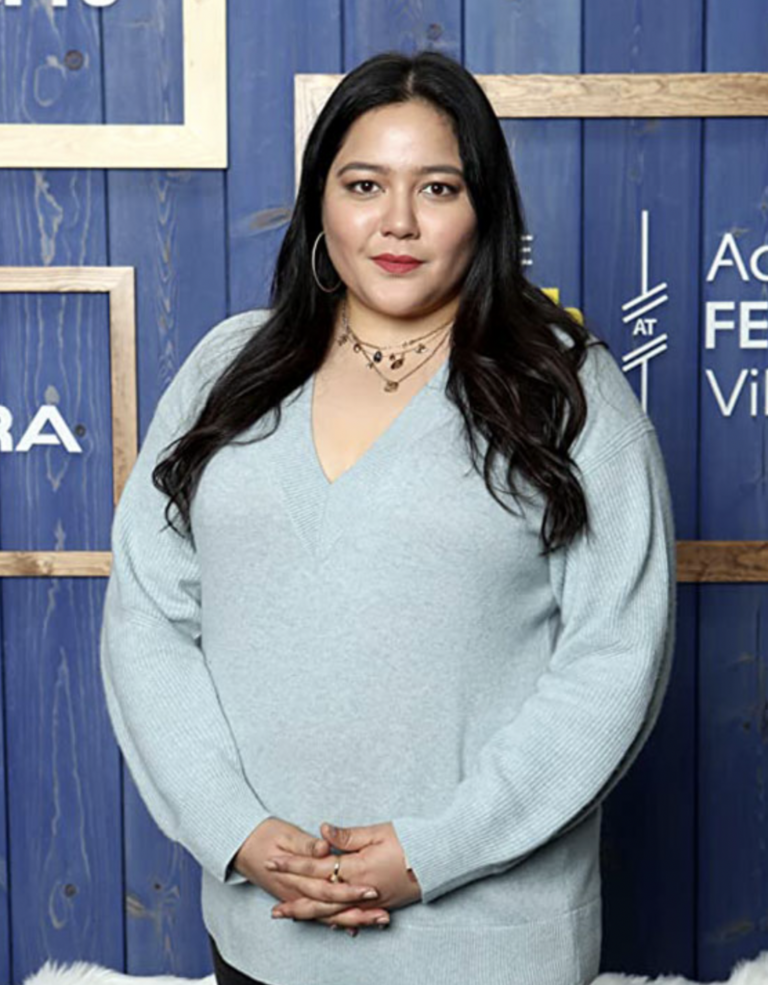Master 21st Century Storytelling
The Online Master of Arts program in Screenwriting for Alternative Media is a program that teaches students how to work in the formats that have started to define the 21st Century: Web Series, Podcasts, Comic Books, Video Games, Immersive Experiences, and Unscripted Media. All these forms require storytelling, but storytelling diverges from the “traditional” media that have defined Screenwriting in the past.
The basic building blocks for these forms can be constructed from the students’ homes. Students will study each form, building stories, story worlds, and content in each form individually. In their Thesis coursework, they will also explore Story Worlds and Franchises.
At the end of the program, each student presents their Franchise to a panel of faculty and industry guests. The panel will critique their work and serve as their first contacts in the industry.
Faculty Highlights
Curriculum
The Online MA in Screenwriting for Alternative Media curriculum is designed to help motivated and enthusiastic writers hone their craft. The curriculum includes:
- Guidance from expert faculty and staff who are actively working in filmmaking and screenwriting
- Hands-on experience working with NYFA’s professional film equipment and access to a world-class equipment library of cameras and lighting kits
- Ongoing guest lectures from influential screenwriters, directors, visual storytellers, producers, cinematographers, and more
To learn more about NYFA’s MA program, refer to NYFA’s Course Catalog or request more information.
The Online Master of Arts in Screenwriting for Alternative Media is an accelerated, three-semester, full-time graduate program.
Upon graduation, students will be able to:
- Build a digital portfolio of works in Alternative Media – including web series (proposal and produced pilot), podcast (proposal and first episode), comic book (proposal and first issue/chapter), game (proposal and playtested prototype), unscripted (concept and pitch deck), and immersive experience (plan, and staged experience) – which demonstrate mastery of Story Structure, Character Development, Tone, Theme, World Building, and Visual Storytelling.
- Work as a professional writer and understand industry best practices and the production process across multiple media, including the development of concepts and written drafts in writers’ rooms and committees, presenting work in professionally formatted Pitch Deck and Proposal form, and delivering professionally constructed verbal and visual pitches and loglines of their ideas.
- Build creative stories around the wants and needs of three-dimensional and fully developed characters, which explore compelling themes and issues to serve as a well-structured blueprint for professional-level produced visual works.
- Apply critical thinking skills, a knowledge of visual language, thoughtful analysis, empathy, and an inclusive understanding of storytelling intention and point of view to deliver professional, insightful, and constructive critique and feedback on developing and producing work or written material.
- Build a personal brand based upon recurring themes, a consistent and fully developed personal voice and tone, and a unique storytelling style across written, verbal, and produced work in and for multiple media and story formats.
Each student will create a Franchise as their thesis project. This Franchise will require at least three of the forms – and in those forms, the student’s projects will be required to be a functional part of the Story World or Franchise they are building. If students want all of their projects to tie into the Franchise or Story World, they will be allowed to do so, but they also can create separate projects across the many forms, so long as they have the three forms required for their Thesis. At the end of the program, each student will present their Franchise and all the parts to a panel of faculty and industry guests, who will critique their work and serve as their first contacts in the industry.
To learn more, visit our project page.
Students interested in pursuing an Online Master of Arts in Screenwriting for Alternative Media will attend remotely.
Breakdown by Semester
SEMESTER ONE OBJECTIVES:
During Semester One, students will be introduced to the tools and skills necessary for writing successful scripts and stories. While students learn about the concept of Transmedia and Franchises (essential to later semester work and their thesis projects), the focus here is on identifying places for story and content and on how to work successfully as a writer. Students will learn about the basics of narrative creation and start building their voice by exploring the kinds of stories and content they wish to create and by looking at what the role of the creator is and how it is connected to the types of stories they put into the world. For students taking the program part-time, each of the courses this semester serves as a prerequisite for the courses in later semesters, as this semester is truly about laying the foundations for your studies, your storytelling, and this program.
SEMESTER ONE LEARNING OUTCOMES:
At the end of Semester One, students will know how to:
- Write in industry-standard screenplay and teleplay format.
- Demonstrate subtext, style, tone, visualization, discipline, and genre proficiency by examining films and film scenes and writing practice scenes.
- Write professionally formatted dialogue, flashbacks, and voiceovers.
- Develop compelling and complex characters for their stories.
- Explore the history of Transmedia through written analysis of Transmedia franchises.
- Build stories around various inspirations, from art and current events to legends/folklore and social media.
- Write a one-page short treatment for a story idea.
- Break down stories, story engines, and series elements for existing television series.
- Use theme and subject matter to create stories that explore issues important to the writer.
- Write a short film.
- Create effective goal-setting and implementation habits to carry students into the professional world.
SEMESTER ONE PRODUCTION GOALS:
At the end of Semester One, students will have produced:
- A script for a short film (3-5 minutes) to help define their brand.
- One-sheet treatments for 8 story ideas or story world ideas.
- Loglines for 8-16 additional story ideas or story world ideas.
SEMESTER TWO OBJECTIVES:
In Semester Two, the coursework shifts focus. Content creation is the main focus of this semester (and the following). Students will begin work on their Thesis, which is the creation of a Story World or Franchise. This Franchise will be constructed around at least three media explored in the program (more if the student so chooses). Early in the semester, the students will develop a Franchise idea, which will dovetail into their work in various media explored during semester two. This media includes Sequential Art (comics, manga, and graphic novels) and Interactive Narrative (games). The coursework also includes practical work in the Business of Content Creation – which will explore the self-starting nature of the media in this program, as well as Audience Building and Crowdfunding – which teaches methods of using today’s social media landscape to promote or even explore your story world, as well as the tools to crowdfund your projects, both in the program and in the future.
SEMESTER TWO LEARNING OUTCOMES:
At the end of Semester Two, students will know how to:
- Examine entertainment industry methods, practices, and players by following the trades.
- Develop ideas for the new media landscape working with its special artistic considerations.
- Plot and write a story for sequential art.
- Conceive a board game, card game, or videogame.
- Research and build rules for the worlds of their stories.
- Crowdfund a startup project.
- Manage their brand.
- Use social media to engage their target audience.
- Use social media to expand or explore their Story World.
SEMESTER TWO PRODUCTION GOALS:
At the end of Semester Two, students will have produced:
- A proposal for an original comic book, graphic novel, or manga.
- A script for the first issue or chapter of a comic book, graphic novel, or manga.
- A Game Proposal for a board, video, roleplaying, card, or other game containing a playtested prototype or a lookbook.
- A non-linear game script from a shared-world project.
- A detailed world presentation for their thesis, Transmedia Franchise.
- A detailed Franchise Proposal defining their project, its world, and all its component parts across multiple (at least 3) media.
SEMESTER THREE OBJECTIVES:
In Semester Three, the coursework is defined as working in production-heavy media. The program shifts to classes that focus on fewer in-class sessions and more production work done on student time, designed to hit deadlines that will allow each project built to fold into the Transmedia Franchise if needed. Thesis II focuses on building a Transmedia Franchise Presentation, and every project connected to this Franchise will be built into the presentation. This presentation can include any material generated last semester or in this one. In Web Series, Podcasts, Comics, Games, Immersive Experiences, and even Unscripted Content, students will build aspects of their story world or independent projects. Each project that ties into the story world will be brought back into Thesis II and the Franchise Presentation. Most Thesis work will be pulling these projects together and deciding the best way to include them in a multimedia presentation (from sizzle reels to playtests to lookbooks… any way that best represents what each medium adds to the story world as a whole). At the end of the semester (and the end of the program), the students will present their Franchise to a panel of industry guests who work across all the media covered in the program. This will be their final Thesis presentation, but also their first foot forward into the entertainment world that they are now ready to join.
SEMESTER THREE LEARNING OUTCOMES:
At the end of Semester Three, students will know how to:
- Pitch and present their stories at a professional level.
- Edit their own work and promotional material for it.
- Direct and produce their own web series pilot.
- Create and produce a podcast.
- Develop concepts for Unscripted Television.
- Create a Pitch Deck.
- Design, write, and stage an immersive experience, theatrical or otherwise.
SEMESTER THREE PRODUCTION GOALS:
- A full proposal for a web series.
- A produced and edited web series pilot.
- A full proposal for a podcast.
- A produced and edited podcast pilot.
- A pitch deck and sizzle script for an unscripted concept.
- A concept for a fully immersive experience or script for an immersive play.
- A recording of the staging of at least one component of their immersive experience.
- A Transmedia Franchise Proposal that includes proposals and materials from at least (3) of the media built in other classes, which are full parts of the Franchise and Story World.
- A presentation of their Transmedia Franchise and all its component parts.
Online Master of Arts in Screenwriting for Alternative Media
| Location | Program Start Date and End Date | Tuition |
|---|---|---|
| Online | September, 2025 – August, 2026 January, 2026 – December, 2026 May, 2026 – April, 2027 | Fall 2025 Semester Tuition and Equipment & Technology FeeTuition:$10,000 Technology Fee:$100 Wellness Services & Programming Fee: Program Duration: 3 |
Please note: Equipment, curriculum, and projects are subject to change and may vary depending on location. Students should consult the most recently published campus catalog for the most up-to-date curriculum.



